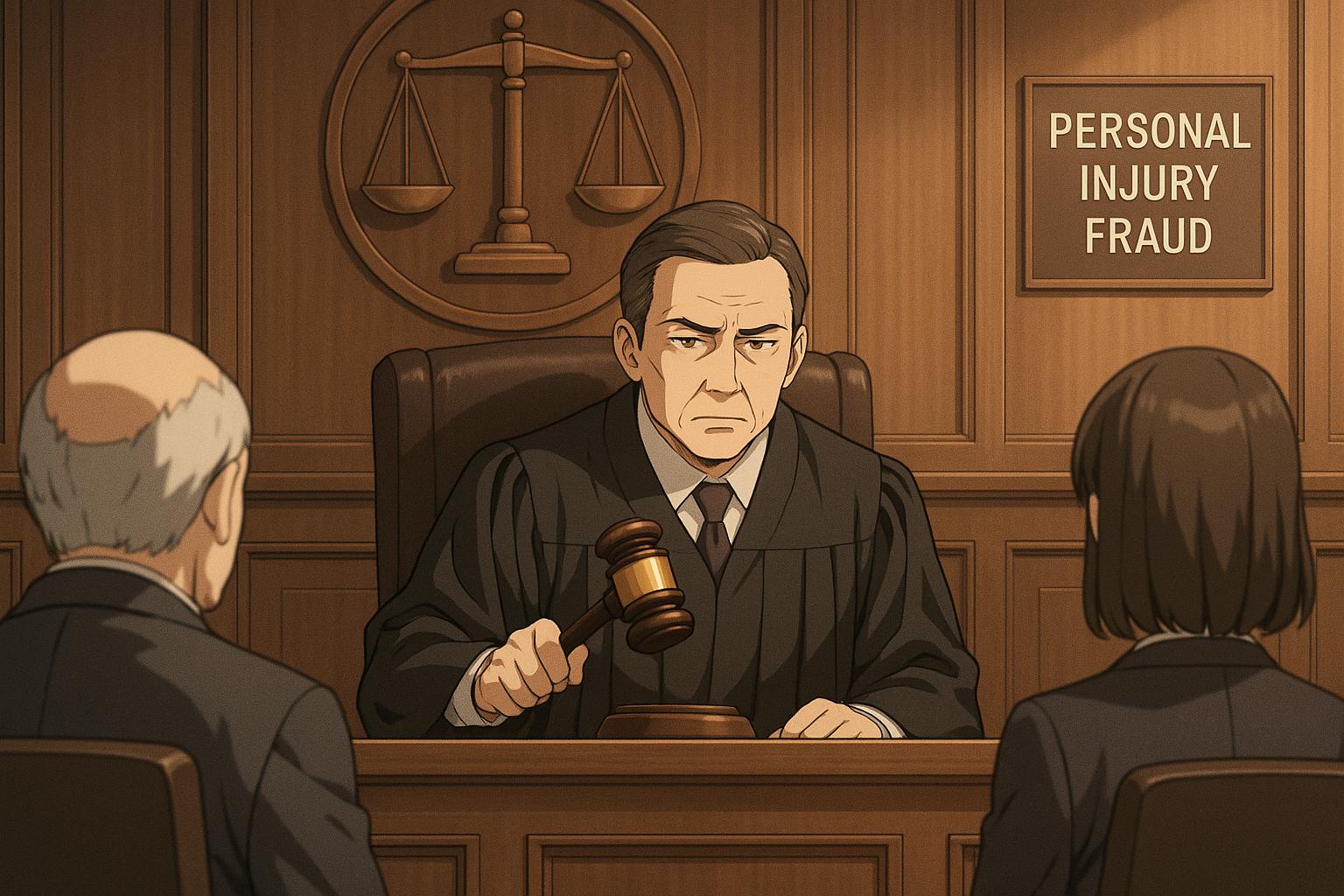A married couple found guilty of contempt of court over a personal injury claim have avoided immediate imprisonment following a ruling by Mr Justice Soole. In the case of Royal & Sun Alliance Insurance Ltd v Hamblett & Anor, Gail and Graham Hamblett were each determined to have presented false evidence in support of Mrs Hamblett's claim for damages after she fell at a flower supplier's premises in Liverpool in 2018. Mrs Hamblett alleged that her fall was due to slipping on a pool of water; however, a thorough examination of the evidence revealed inconsistencies in her account.
Following a detailed two-day trial, Recorder Knifton KC dismissed Mrs Hamblett's claim, branding it fundamentally dishonest. The judge concluded that Mrs Hamblett had stumbled into a display bucket while carrying a large box of flowers, thus undermining her assertion that the fall was due to negligence on the part of the flower supplier.
The pivotal issue in the case emerged around a 'doctored invoice' that Mrs Hamblett submitted as evidence. This invoice was purported to be from the wholesaler, reflecting costs associated with broken flowers supposedly due to her fall. However, it was later revealed to be a tampered version of a legitimate invoice from 2017, significantly undermining the credibility of her claim. During the proceedings, it was noted that the alterations were made in a manner that was ‘undoubtedly amateurish’, suggesting a level of desperation to support the false narrative.
The court heard that Mrs Hamblett had engaged solicitors to handle her claim on a no win no fee basis. However, the day of the trial revealed that her legal representation had concerns about the authenticity of the documents presented. Mrs Hamblett expressed feelings of being 'very let down' by her solicitors, claiming they had not sufficiently prepared her for the potential costs associated with her case. This lack of communication appears to have compounded the issues surrounding the falsified evidence.
In issuing his ruling, Mr Justice Soole stated, “The deliberate presentation of a false but potentially relevant document in litigation itself constitutes an interference with the course of justice.” He further indicated that the evidence presented was not only misleading but significantly affected the judicial process. While he acknowledged the couple's dishonesty and proposed a four-month sentence, this was suspended for a year, taking into account mitigating factors and the potential wider implications for others involved in litigation.
This case underscores the growing scrutiny of personal injury claims, especially in light of rising instances of fraudulent claims. As the legal landscape evolves, insurers and the courts are increasingly vigilant about ensuring that claims are substantiated by credible evidence. In a related context, the UK Supreme Court's recent ruling in Armstead v Royal & Sun Alliance Insurance Company Ltd reiterated the principles surrounding recoverable losses in personal injury and insurance claims, highlighting the importance of maintaining integrity within the claims process.
The implications of these cases illustrate a broader concern about the integrity of the legal system and the challenges faced by those seeking genuine redress. While justice must be served to those truly injured, the potential for fraudulent claims can undermine public confidence in the system. As such, the responsibility lies not only with claimants but also with legal professionals to ensure that justice prevails in both substance and procedure.
As the legal landscape shifts, the implications of these rulings will resonate within both the insurance sector and the wider public. The need for vigilance against fraud, alongside the provision of appropriate legal counsel, becomes paramount as the judiciary strives to maintain a fair and just system.
Reference Map
Source: Noah Wire Services
